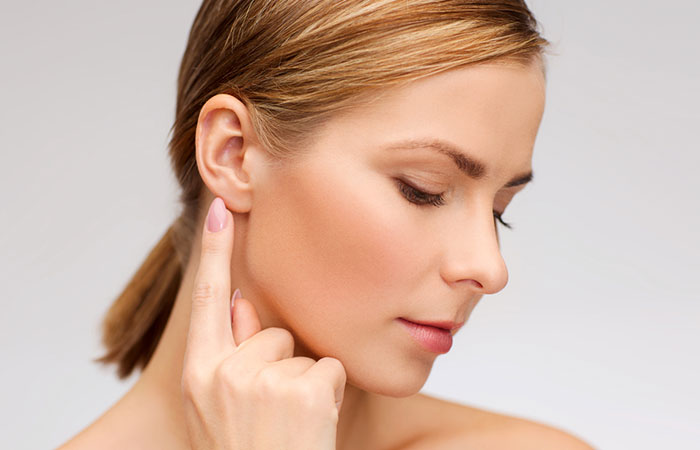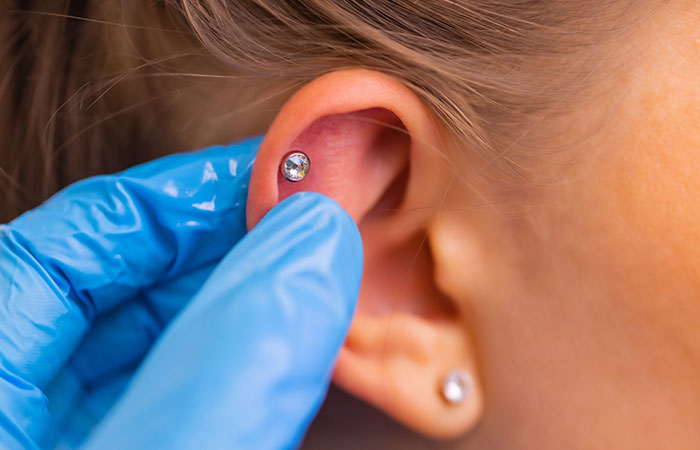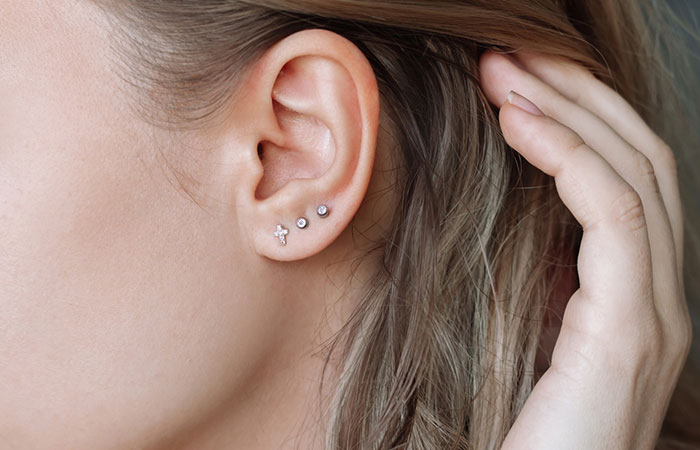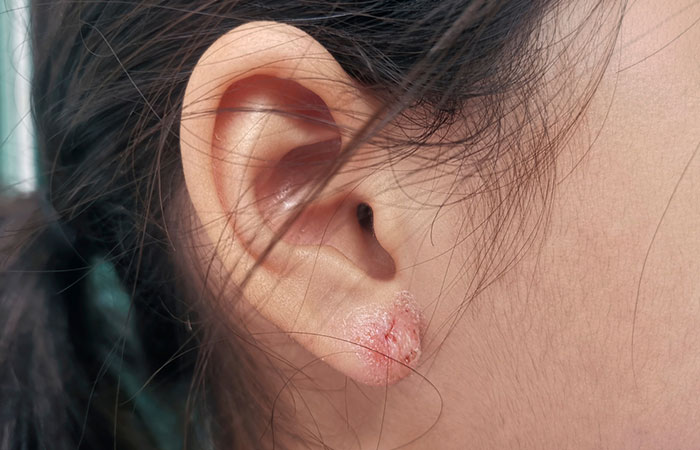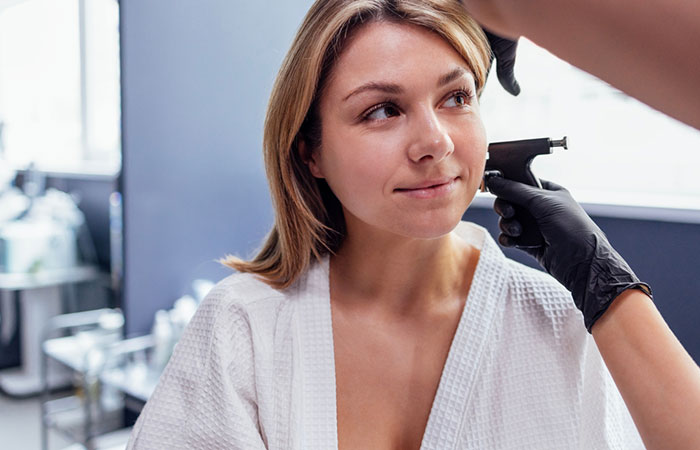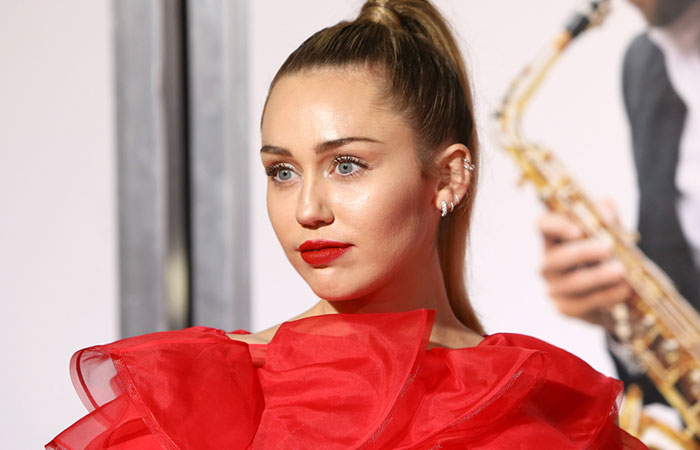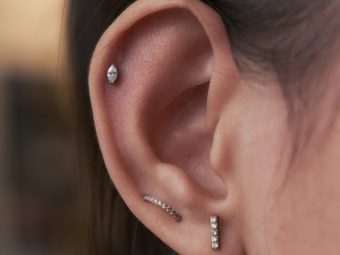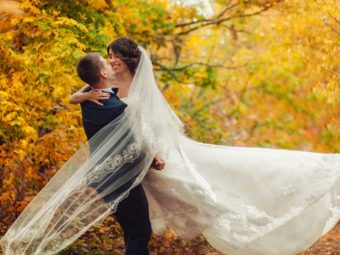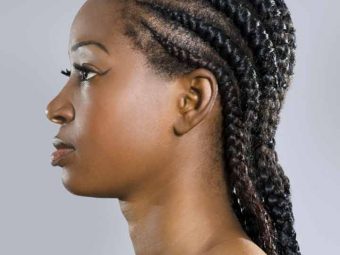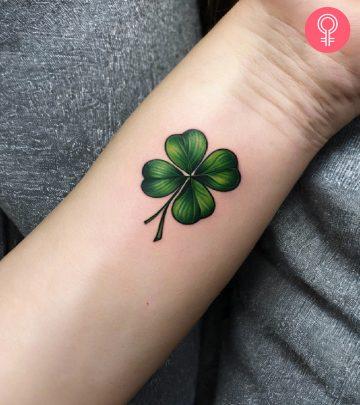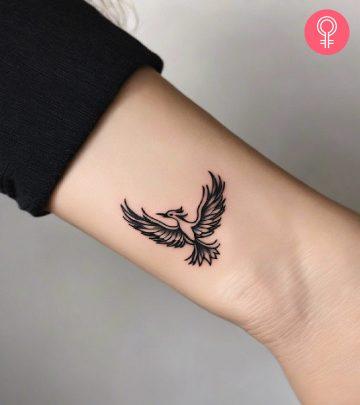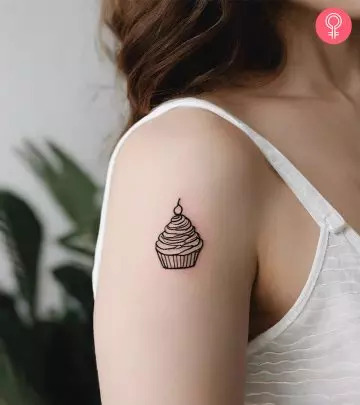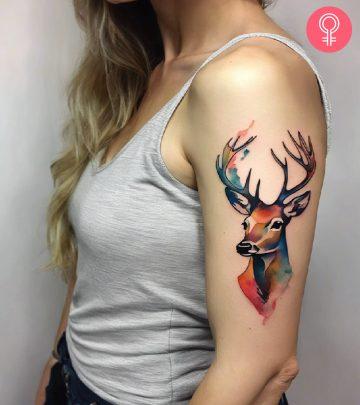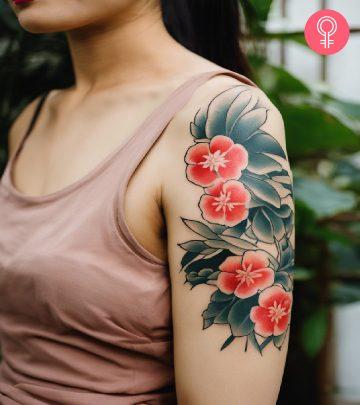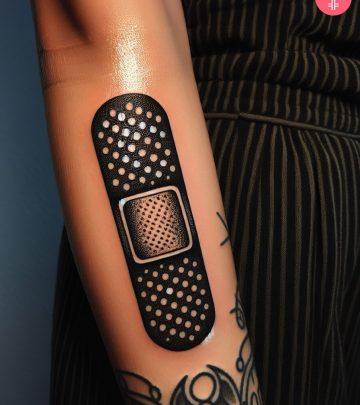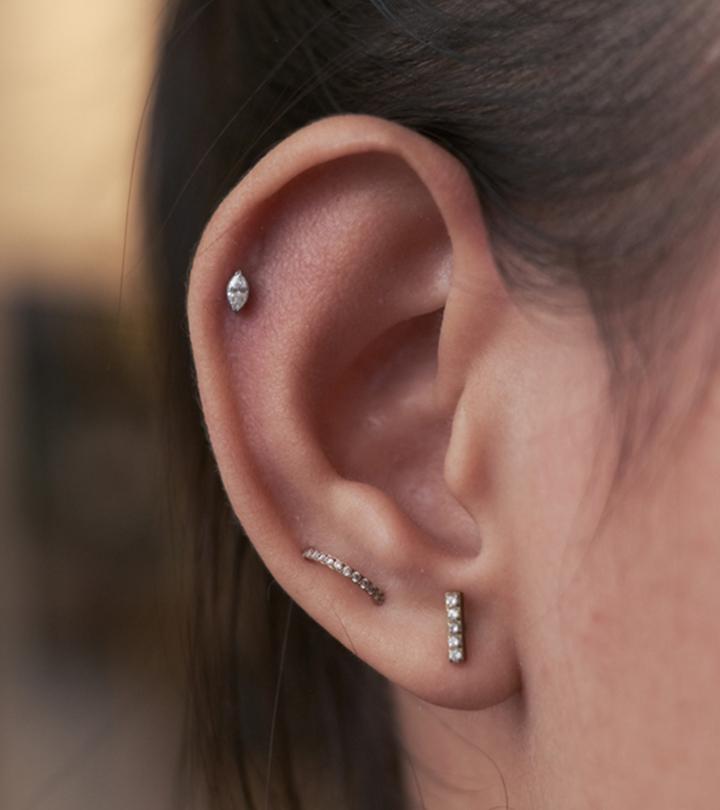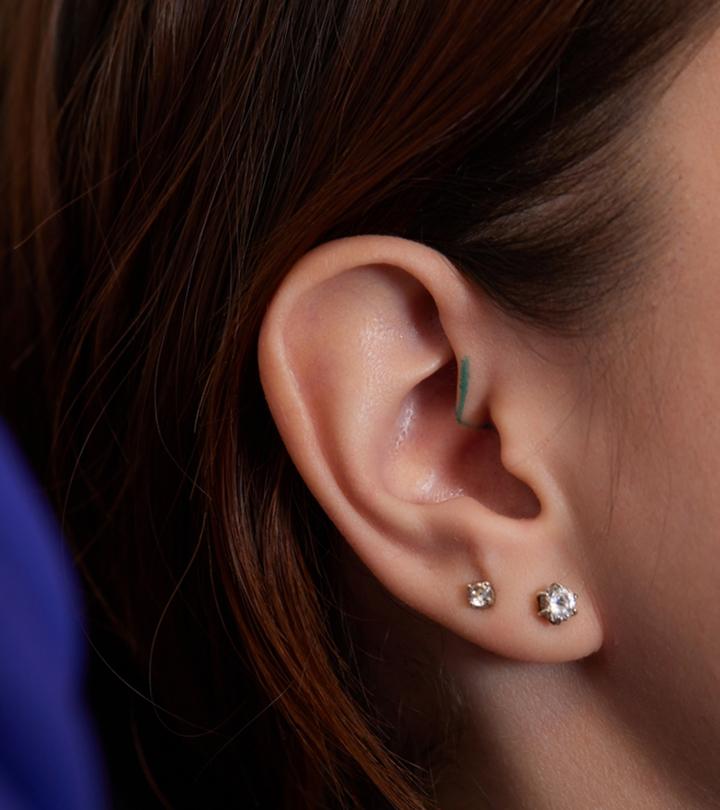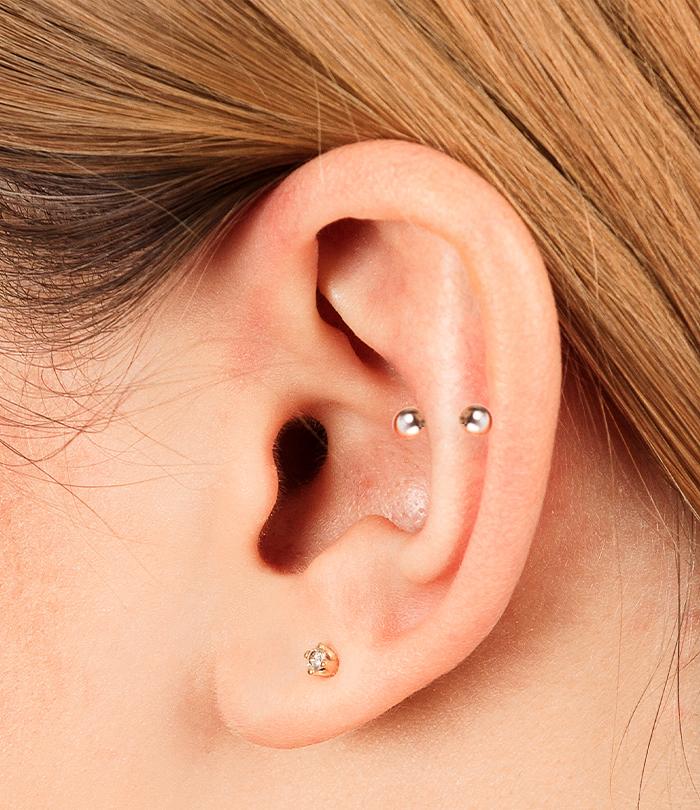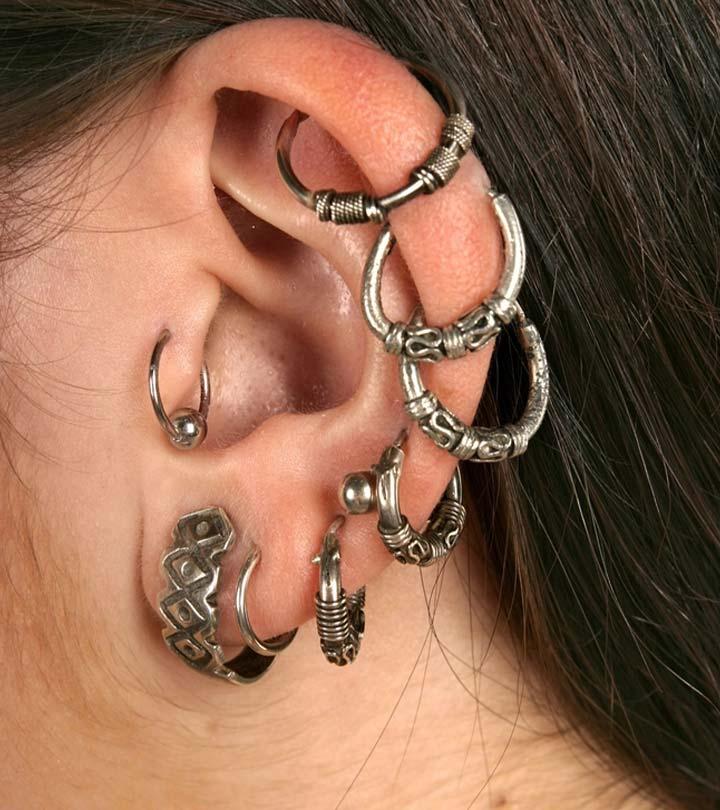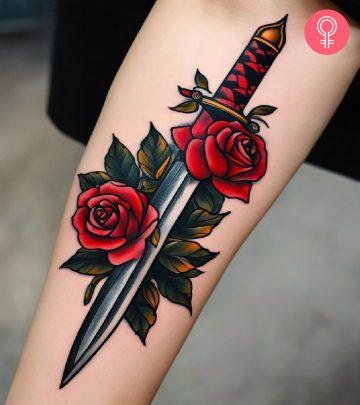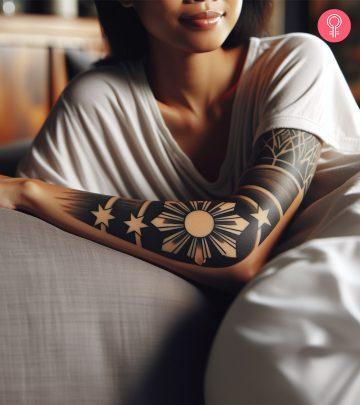Curated Ear Piercing: What It Is And How To Style
Elevate your taste and master the art of piercings. Let your ears do the talking!
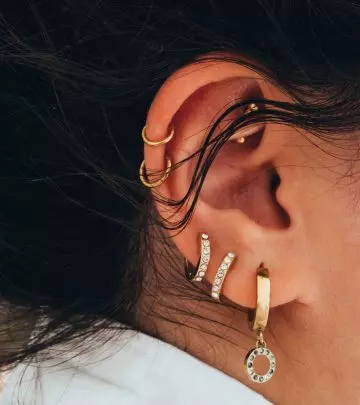
Image: Shutterstock
Curated ear piercing elevates the process of getting pierced into an artful, personalized experience. It involves adorning your ears with multiple piercings and choosing from hundreds of jewelry options to create a cohesive look and make a bold fashion statement. It is like creating a tiny masterpiece on your earlobe, helix and conch. Unlike random piercings, this process results in ear piercings that are flattering and aligned with your personal taste and preferences. The placement and jewelry are specially selected to complement your individual facial features, style, and aesthetic goals.
So, whether you like minimalist jewelry such as studs or are a maximalist who loves bold statement pieces, curated ear piercing offers a way to elevate your everyday look. This tailored approach to ear piercings has become a popular trend, which begs the question: Where did curated ear piercings originate? Read on to find out.
 Piercing Guide: Curated Ear Piercing
Piercing Guide: Curated Ear Piercing- Placement: Anywhere on the ear, including the lobe and the cartilage
- Best Jewelry: Studs, hoops, dangles, chains, ear cuffs
- Cost: $30 to $100
- Pain Level: Low to medium
- Healing Time: 3 to 12 months
In This Article
Where Did The Curated Ear Piercing Trend Originate?
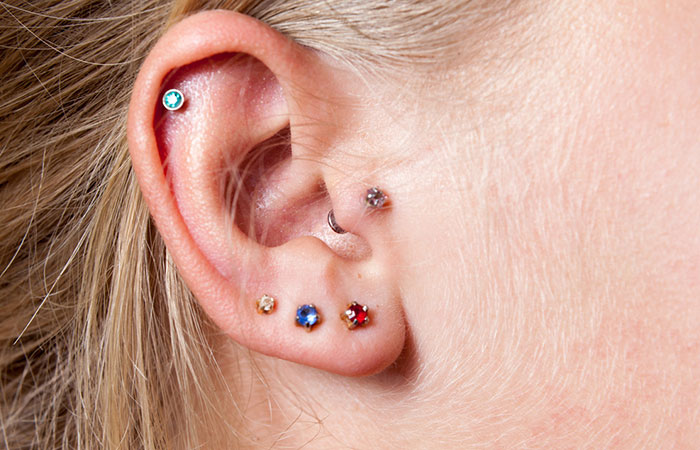
While multiple ear piercings are nothing new, the current trend of curated ear piercing and the specific term “curated ear” went mainstream in the 21st century. It can be attributed to two main sources:
- Jewelry Designer And Piercer Maria Tash
Recognized as a pioneer of the trend and also known as “the piercer to the stars,” Tash was the reason the term “curated ear” came into existence. As a renowned New York-based jewelry designer and piercing expert, she took a high-end, artistic approach to piercings that was way ahead of the time. Her meticulous approach to piercing placement and jewelry selection propelled her into the limelight. Tash helped elevate piercings from a counterculture practice to a sophisticated, personalized form of body art.
 Trivia
TriviaWhile Maria Tash played a significant role in bringing the term and concept to the forefront, its widespread adoption was also fueled by the evolving world of piercing and online communities forged around it.
- The Rise Of Ear Piercing Studios And Social Media
As professional studios offering specialized piercing services and diverse jewelry options emerged, they helped cultivate an environment for the trend. Platforms such as Instagram and Pinterest provided a space for people to share their curated ear designs and inspire others. As Tash’s trend went viral, innovative techniques such as constellation piercings and stacked piercings found a wider audience.
While curated ear piercing has its origins in body modification subcultures, the trend has certainly gone mainstream. Keep reading to learn more about the most popular source of inspiration for curated ears today.
Inspirations For Curated Ear Piercings
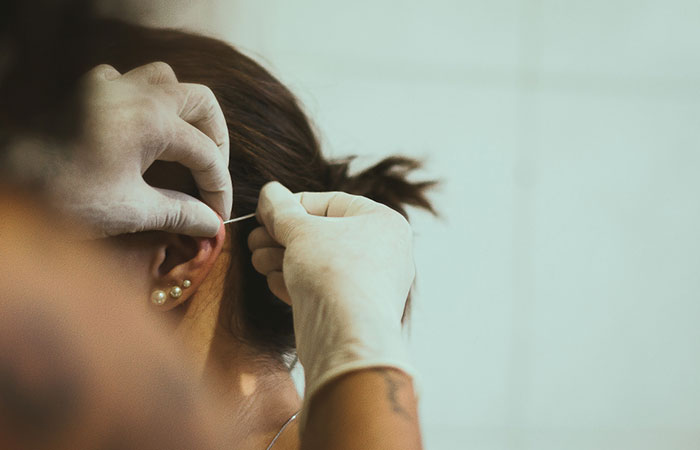
Curated ear piercing allows individuals to showcase their creativity through a combination of various earrings and designs. Here are some inspirations for your curated ear journey!
- Minimalist
The minimalist style focuses on subtlety and simplicity with delicate jewelry such as thin hoops, studs, or small diamonds. The emphasis is on clean lines and unassuming designs. Common piercing locations include lobes, helixes, and tragus.
- Classic
The classic set includes timeless and elegant jewelry such as pearls, diamonds, and gold and silver metals. It incorporates staple pieces such as a single lobe piercing and elegant cartilage studs such as the helix or rook.
- Bohemian
The bohemian is anything but a mundane style. It conveys an asymmetrical look. It can be layered with pendant earrings, hoops, gemstones, or mismatched jewelry. It often includes the use of feathers or beads, artisanal pieces, and jewelry with earthy tones.
- Themed
This style inspiration coordinates piercings and earrings around a central theme, such as celestial motifs, floral arrangements, nautical elements or animal prints. It makes use of playful symbolic charms, shaped studs, and ornate cuffs for visual storytelling.
- Clustered
This clever way of styling groups multiple piercings close together in the same area of the ear to create a dense, constellation-like arrangement without making it look shabby. It carefully utilizes various sizes and styles to create a visually dynamic and textured look.
- Hooped
This ear styling focuses on and celebrates the versatility of hoop earrings in different sizes and thicknesses. They are layered together on multiple piercings along the edge and helix of the ear.
- Statement
This advanced form of curation is bold and eye-catching as the jewelry pieces are meant to be the focus. It may include oversized studs, elaborate cuffs, intricate ear climbers or large gems with elongated shapes.
- Edgy
This style has a mix and match of earrings. Double lobe piercings, tragus piercings, the helix, industrial, rook, and daith – all provide edgy options. Jewelry may include large gauge plugs, spikes, cuffs, and chains that help create drama.
Get creative, mix and match styles, and let your personality shine through these beautiful ear curations. Wondering which ear piercings go well together? Let us explore a few tips on how to decide that in the next section.
How To Plan For Curated Ear Piercings?
Creating a curated ear can involve adding new piercings to create a new look or dressing up an existing earring to create a different look. No matter what you choose, planning a curated ear involves careful consideration of personal style, anatomy, and aesthetics. Here are some tips for planning and curating cohesive ear piercings:
- Consider your facial features and ear anatomy before diving. Look at the shapes and structure of your ears to determine flattering placements for piercings, as certain piercings might suit your ear shape better than others.
- Once your anatomy check is done, decide on an overall aesthetic, theme or style you want your piercings to have. This will also help you with your jewelry selection.
- Reflect on your hobbies or interests, or look at photos of curated ears with styles you are drawn to for inspiration. Note the placements and combinations you like.
- Start simple. Map out just a few coordinated piercings and build up over time. Leave space for future additions.
 Quick Tip
Quick Tip- Mix different textures and shapes, such as a small hoop with a gemstone stud. Use symmetry or asymmetry intentionally to create an organized look.
- Ensure adequate healing time between new piercings, and plan future additions. Avoid overloading with too many fresh piercings simultaneously.
- Consult reputable piercers; their advice is invaluable. They can assess your anatomy, advise on suitable piercings, and recommend jewelry options.
A cohesive aesthetic vision is key when mapping out your curated piercings. But beyond choosing the perfect jewelry and theme, a crucial step lies in deciding their placement. The next section covers that.
How Do You Decide On The Placement Of The Piercings?
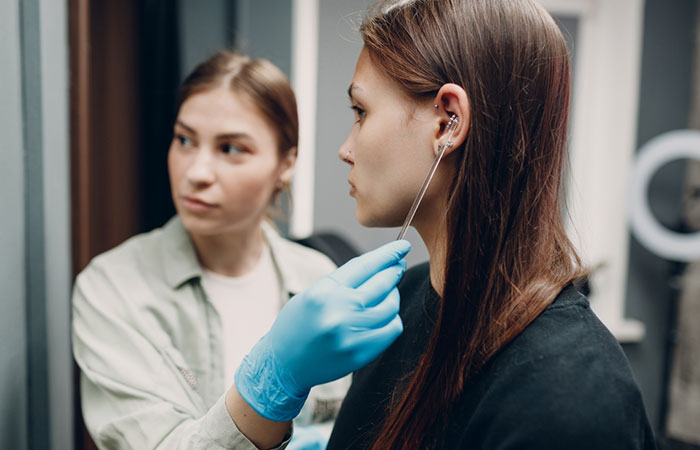
When curating the perfect ear piercing arrangement, placement is just as important as the piercings selected. The positioning of each new hole impacts the overall effect and requires thoughtful consideration. Here are some tips for deciding on placement when planning curated ear piercings:
- Analyze your ear anatomy, consider the natural contours and dimensions of your ears, and balance your face shape.
- Determine if you want symmetrical piercings to create balance or asymmetrical ones for an edgy and playful look.
- Map out spacing between piercings so they are not too crowded or too far apart. Measure proportions.
- Cluster piercings harmoniously in complementary shapes such as triangles.
- Pair delicate pieces near your face and larger, bolder ones farther up the ear to make optimal use of proportion.
- Consider the stages in which you will get them pierced, starting with easier healing spots first.
 Quick Tip
Quick TipPlacement provides the foundation, but the jewelry you select is key to completing your curated ear aesthetic. In order to create a glamorously curated ear, understand the top materials for earring in the following section.
Materials And Jewelry Options For Curated Ear Piercings
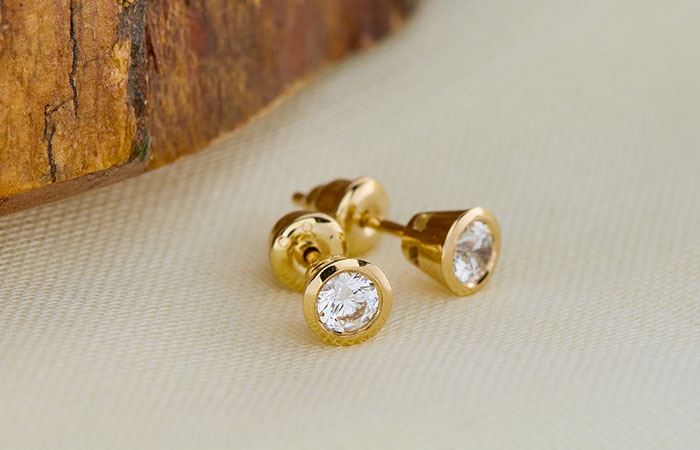
There are no hard and fast rules for curated ear piercing. The options are endless! Do not be afraid to experiment and adjust your layout as you go. To optimize your look and reduce the risk of infection, it is recommended to opt for the best materials available. Here are a few safe options for you to try:
- Titanium
It is hypoallergenic, durable, and lightweight and perfect for sensitive ears.
- 14-18 Karat Gold
It is a durable and timeless choice that gives a luxe look but is also more expensive.
- Platinum
A rare precious metal that is quite an expensive option but safe for sensitive skin.
- Surgical Stainless Steel
It is an affordable, low maintenance and reliable option available in various colors and finishes.
- Silver
An affordable and versatile option, but prone to tarnishing.
The jewelry material itself is important for promoting healing and comfort. To take your look to the next level, the specific type of earring also matters. Here are some options to start with:
- Studs
They are the foundational element for any curated ear and are available in various shapes and materials.
- Hoops
They are classic and versatile, ranging from small ones to statement-making large hoops. Choose from plain, textured, or gemstone-embellished styles.
- Dangles
They add movement and depth with earrings that cascade down from your ear and are available in various styles and lengths.
- Chains
They help create dimension and add drama to your ears, curating a unique and playful look.
- Ear Cuffs
They hug the helix, or outer conch, and look quite sophisticated. They are ideal for a statement look.
These adornments help you complete your look. Yet your work is not done. Regular aftercare is required to maintain a healthy piercing. The following section provides some tips on it.
Aftercare Tips For Maintaining Curated Ear Piercings
Proper aftercare is vital for a healthy, beautiful, and curated ear piercing. Here are some aftercare tips that help you reduce the risk of infections:
- Clean piercings twice daily with a saline spray or soap recommended by your piercer to prevent infection.
- Avoid touching or moving piercings unnecessarily for smooth healing.
- Only turn or remove jewelry when cleaning, and be sure to wash hands thoroughly first.
- Pat dry piercings gently with disposable paper towels or a clean tissue after cleaning.
- Avoid submerging new piercings in bodies of water like pools, lakes, etc., that can expose them to bacteria.
- Watch for signs of infection like persistent redness, swelling, hotness, discharge or excessive pain. See your piercer promptly if concerns arise.
- After the initial healing period, regularly remove and clean the buildup on jewelry, especially earrings that screw on.
- Always follow your piercer’s specific aftercare instructions for new piercings rather than generic directions.
- Consider travel pillows and donut cushions to sleep on and avoid irritating ear piercings.
- Wear your hair up or pulled back if possible while piercings are healing to avoid friction and snagging.
- Resist the urge to change your jewelry too soon.
Along with the aftercare routine, your piercings need time to blossom. Let us explore the intricacies of the healing process in the following section.
Timeline Of The Healing Process
It takes consistent aftercare over a period of time for piercings to heal well. Patience is key! The healing timeline for curated ear piercings may vary depending on several factors, including the location of the piercings, your individual anatomy, and the level of adherence to an aftercare routine. Here is an overview of the typical healing process and timeline for curated ear piercings:
- For the first 3 months, the wound is open and prone to irritation. This phase will require you to clean 2-3 times daily with saline spray and avoid touching. Some swelling, soreness and discharge are normal.
- Within 3-6 months, the piercing’s swelling goes down, and the discharge lessens. The pain should decrease by this time.
- Between 6-12 months, piercing looks normal. But changing jewelry is not yet recommended, as it may give rise to discomfort.
- In one year, the piercing is fully healed and can now safely accommodate jewelry changes.
- Cartilage piercings have a slower healing timeline of 9 months to 1 year minimum, given less blood flow.
- Lobe piercings are the fastest when it comes to healing and usually take 3-6 months.
- Helix piercings take longer, 6-12 months for complete healing.
- Conch piercings have thicker cartilage and can take 8-12 months, or even longer, to heal fully.
- Flat piercings are similar to helixes, as they need 6-12 months for complete healing.
- Tragus piercings are relatively quick to heal and take 4-6 months.
The healing journey, while crucial, might require a touch of patience. But trust us, it is worth the wait. At the end of the healing process, you will see the benefits of curated ear piercings. Let us explore them in greater detail in the next section.
Advantages Of Curated Ear Piercings
Curated ear piercings offer a multitude of advantages that go beyond just aesthetics. Here are some of the key advantages of a curated ear piercing.
- Customization And Control
You can always add or remove piercings, change your jewelry, and adapt as your style evolves. Previous random piercings can be worked into or built upon in a more intentional way.
- Unique Self Expression
Curated ear piercings help you express your artistic side, as they involve creativity and planning. It allows you to express your unique personality, style, and interests.
- Fashion Upgrade
Curated ears help you experiment with different themes, styles, and materials. They add a one-of-a-kind touch to any outfit.
Along this exciting path lies a responsibility to understand the potential risks associated with the process. Keep reading to know more.
Potential Risks Of Curated Ear Piercings
Unlike a simple fashion accessory, curated ear piercings involve puncturing your body, and with that comes a certain level of responsibility. Here are some of the uncomfortable truths you need to confront before embarking on this journey.
- Pain And Discomfort
Piercings, especially on cartilage, can cause swelling, redness, discharge, and pain during and after the procedure (1).
- Infection
Getting multiple new piercings increases the risk of one or more developing an infection, especially if aftercare is not followed diligently. These infections may warrant antibiotic treatment (2).
- Scarring
If a piercing gets infected or is done improperly, it may leave behind a noticeable scar on the ear after removing the jewelry.
- Allergic Reactions
Certain materials, such as nickel, can cause allergic reactions and lead to redness, swelling, and itching (3).
- Migration And Rejection
The body might reject a piercing, causing it to move or push the jewelry out due to improper placement or poor quality of the jewelry.
- Irritation
Having multiple piercings near each other raises the chance of friction, tugging, and accidental bumps, which can irritate the piercing site and delay healing.
No matter how you choose to adorn your ears, it is crucial to prioritize your health and make informed choices. To make your journey smoother and safer, it is important to understand why a professional piercer plays a pivotal role. The next section sheds light on it.
Professional Vs. DIY Curated Ear Piercings
Curating an ear piercing look is a process – one that experts advise undertaking with a professional rather than attempting piercings yourself. Here is a comparison of professional vs. DIY curated ear piercing.
Professional Curated Piercing
- Expert guidance on optimal placement and combinations to flatter your features and style.
- Access to high-quality jewelry and materials suited for new piercings.
- Sterile, precise piercing techniques that help minimize scarring and infection risks.
- Ongoing support during the healing process is necessary to ensure proper aftercare.
- Cohesive planning for a long-term vision and creative goals.
- Customized experience and collaborative process with an experienced piercer.
DIY Curated Piercing
- More affordable but risks unsafe materials and improper technique.
- Difficulty controlling placement and angle.
- Higher risk of infection, uneven spacing, bleeding and scarring.
- No expert advice on pairing piercings or jewelry best for your facial features and anatomy.
- Healing and aftercare may be compromised without professional guidance.
- You may not be able to get a cohesive vision for your curated look.
While DIY piercings provide more flexibility and lower costs up front, working with a reputable professional is the safest approach for minimizing risks and achieving your desired look through a customized curated ear piercing process.
While professional piercers ensure safety and personalized guidance, celebrities and influencers have also played a crucial role in shaping curated ear trends. Let us see how they have popularized this style.
Inspiring Trends From Celebrities/Influencers
Celebrities and influencers play a pivotal role when it comes to ear piercings. They are the ones who started the trend of ear piercings and inspired people around the world to start experimenting with different types of piercings and ear jewelry. Some notable examples include Beyoncé, Nicole Richie, Jennifer Hudson, Miley Cyrus, Kylie Jenner, Cara Delevingne, Ashley Graham, and Keke Palmer. Piercers and content creators on social media sites such as TikTok, Instagram, and YouTube also provide inspiration for curating unique piercings. The cutting-edge styles of top musicians, models, and actresses filter down and influence how people conceive ear piercings as fashion, which prompts curated ear trends. You can look out for your favorite ear styling inspo from any of them!
Curated ear piercing is a trend that has taken the fashion world by storm. We delved into the intricacies of planning it, deciding on placement, taking care of it, and the potential risks associated with it. The key lies not only in the choice of piercings and jewelry but also in understanding that it is a collaborative process between you and your piercer. Armed with the information provided here, you are now ready to approach this journey head on. Embrace the process, explore, make informed choices, and most importantly, have a lot of patience. Let your curated ears be a reflection of your personality, and may your story shine better than your studs!
Frequently Asked Questions
How many curated ear piercings are too many?
There is no specific limit to the number of piercings; it is a personal choice, but it is important to consider the ear’s shape and size to ensure the piercings are well-placed and complement each other aesthetically.
How is curated ear piercing different from traditional ear piercing?
A curated ear piercing involves styling the ear with multiple piercings and jewelry that are carefully selected to complement each other and the individual’s aesthetic. In contrast, traditional ear piercing typically refers to a single or a few standard piercings, such as the earlobe or cartilage piercings, without the same level of customization and coordination.
Does curated ear piercing hurt more than regular ear piercing?
No. The pain experienced during a curated ear piercing can vary depending on the individual’s pain tolerance and the specific areas being pierced. Generally, cartilage piercings, which are common in curated ear styles, may cause more discomfort than standard lobe piercings.
Should both ears always be symmetrical?
No. While symmetrical ear piercings can create a balanced look, there is no strict rule that both ears must be symmetrical. It is a matter of personal preference and style.
Key Takeaways
- The term “curated ear” refers to a carefully and deliberately arranged collection of different styles of earrings across several piercings, creating a one-of-a-kind look.
- Start with a focal point such as the lobe, helix, or conch and build around it with complementary piercings.
- Balance is what drives this look. Distribute piercings across different areas and avoid overloading one area.
- Choose placements that make you feel confident and resonate with your individuality. Start small and build your curation over time. You can always add more piercings later.
- Play with contrasts. Mix large hoops with small studs, or geometric shapes with round ones. Texture and color: Combine smooth and textured pieces or warm and cool metal tones for depth.
Ear piercings are having a major moment, and curated ear piercing is in! Before your next trip to the piercing studio, learn the dos and don’ts of the process. Check out this video for professional guidance to ensure a safe piercing experience.
References
Articles on StyleCraze are backed by verified information from peer-reviewed and academic research papers, reputed organizations, research institutions, and medical associations to ensure accuracy and relevance. Read our editorial policy to learn more.
- Face Piercing (Body Art): Choosing Pleasure vs. Possible Pain and Posture Instability
https://www.ncbi.nlm.nih.gov/pmc/articles/PMC3177080/ - Caring For New Piercings
https://www.aad.org/public/everyday-care/skin-care-basics/tattoos/caring-for-pierced-ears - Nickel Allergy
https://www.ncbi.nlm.nih.gov/books/NBK557638/




